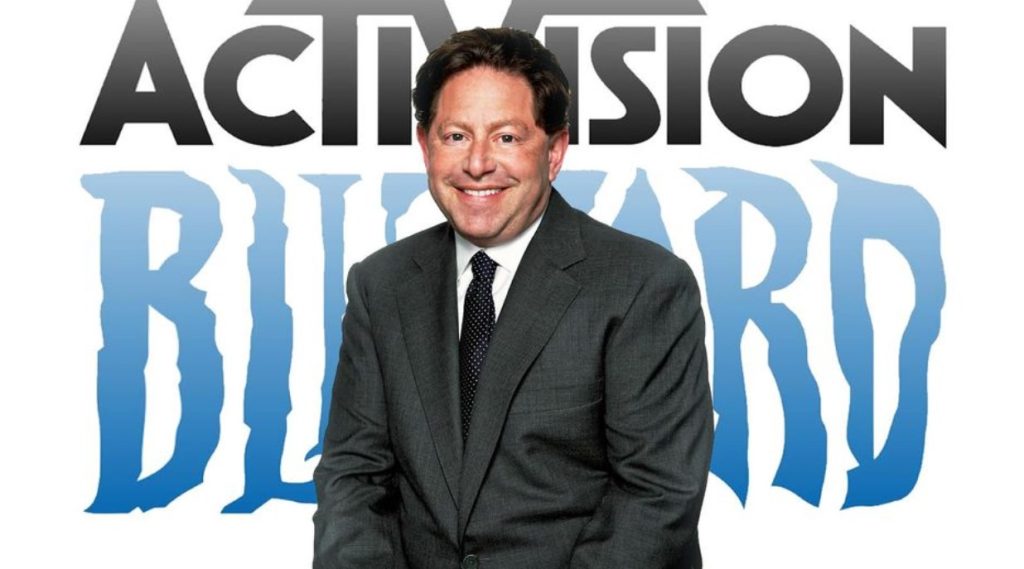
Bobby Kotick, the chief executive of Activision Blizzard Inc., could walk away with as much as $520 million after Microsoft Corp. completes its planned purchase of the videogame company.
In a securities filing Friday, Activision said Mr. Kotick would receive $14.4 million in severance if he is terminated or quits under a variety of circumstances within a year of a change of control at the company. It also said Mr. Kotick owns 4.3 million shares and has the right to acquire another 2.2 million — potentially worth just over $500 million combined at the $95-a-share deal price. Mr. Kotick received $826,549 in compensation in 2021, according to the filing.
Friday’s disclosure, in Activision’s annual proxy statement, reflects the company’s definitive accounting for Mr. Kotick’s stake in the company and potential severance under existing agreements. It provides investors their best window to date into the potential windfall Mr. Kotick could receive after the acquisition, which is pending regulatory approval. Activision and Microsoft have said they expect it to close by spring 2023.
Activision said on Thursday that its shareholders approved the merger.
Mr. Kotick, 59 years old, is part of a group of people who in 1991 acquired the assets of the company that became Activision Blizzard. He has been its CEO ever since, making him one of the longest-serving heads of a publicly traded tech company. Mr. Kotick is expected to step down from Activision when the deal closes, the Journal reported in January.
A spokeswoman for Activision Blizzard said that Mr. Kotick purchased $50 million worth of Activision stock in 2013 and that he, along with all shareholders, got the benefit of a 500% increase in value due to the company’s “extraordinary performance” under his leadership over the past eight years. All equity he has earned is based on performance, she said.
In its regulatory filings, Activision also said Mr. Kotick doesn’t stand to receive any additional equity, or to see his rights to any equity awards accelerated, as a result of the acquisition, or if he should depart in the wake of the deal.
Activision reported paying Mr. Kotick $155 million in 2020, mostly in equity, making him the second-highest paid CEO in The Wall Street Journal’s annual analysis of compensation for S&P 500 CEOs. At the time, Robert Morgado, Activision’s lead independent director, said the CEO’s pay was earned over four years and reflected more than three decades of creating value for shareholders.
Santa Monica, Calif.-based Activision, known for its Call of Duty, World of Warcraft and Candy Crush franchises, has around 10,000 employees.
Mr. Kotick has been roiled in controversy, as state and federal regulators have accused Activision of mishandling employee sexual-harassment cases and gender-pay disparity. In October, Mr. Kotick said he asked Activision’s board to reduce his salary to the minimum allowed under California law for salaried workers — $62,500 — and that he would forgo bonuses and equity grants. The announcement was part of a series of changes Mr. Kotick said were aimed at making the company more diverse and safer for employees.
Mr. Kotick himself has been accused over the years by several women of mistreatment both inside and outside the workplace, according to people familiar with the incidents and documents, the Journal reported in November. Activision has said that the Journal’s article paints “a misleading view of Activision Blizzard and our CEO” and that it “ignores important changes under way to make this the industry’s most welcoming and inclusive workplace.”
In late March, a California judge approved an $18 million settlement between Activision and the Equal Employment Opportunity Commission, which has been investigating the company over allegations of sexual harassment and retaliation.
Separately, Activision was sued in July by California’s Department of Fair Employment and Housing for allegedly ignoring complaints by female employees of blatant harassment, discrimination and retaliation. The company has said the lawsuit includes distorted, and in many cases, false descriptions of its past, and that it strives to pay all employees fairly.
The U.S. Securities and Exchange Commission also is investigating Activision over employees’ allegations of sexual misconduct and workplace discrimination. Activision has said it is cooperating with the agency.